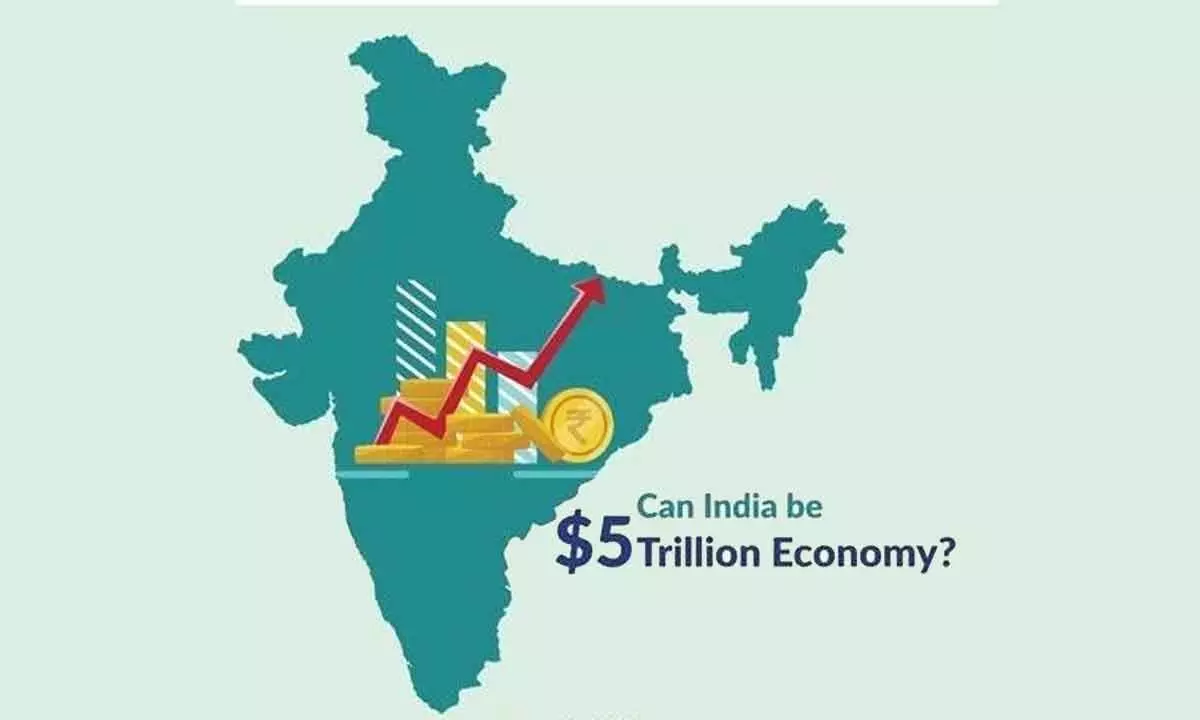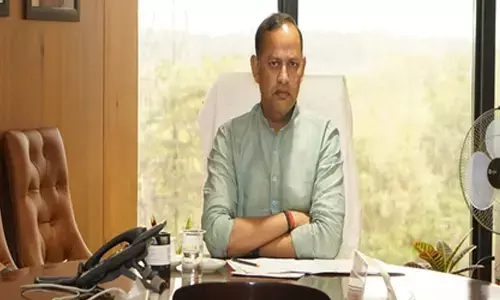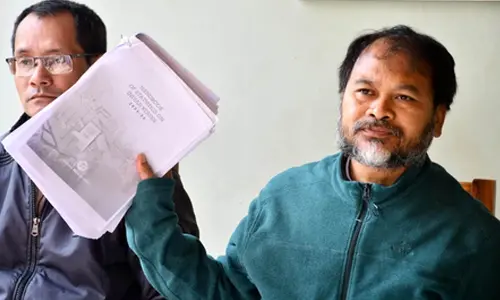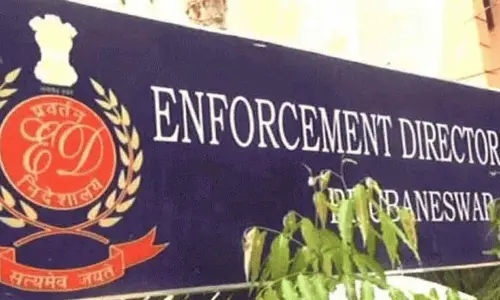States’ role key in achieving $5 trillion economy for India

The Central government’s roadmap comprises focusing on growth at the macro level and complementing it with all-inclusive welfare at the micro level, promoting digital economy and fintech. India’s economy is expected to grow at a rate of 6.5% in 2024 and 2025, with technology-enabled development, energy transition and climate action and reliance on a virtuous cycle. For a $5 trillion economy to become a reality, there should be a perfect eco system in the country. All states need to work to create such eco system, enhance their brand image, attract investments and generate higher revenue. This means that there should be perfect law and order situation in all parts of the country and the political executive, ruling parties and opposition should have a progressive mind set
Four phases of elections are over. The stage is set for the fifth phase where some prominent leaders including Rahul Gandhi whom the Prime Minister Narendra Modi calls as ‘Shehzada’ would be testing the waters from Rae Bareli. There will be two more phases before the entire poll process comes to an end. On June4, the country will know whether it is Modi 3.0 or bloc INDI who would rule the country for the next five years.
Well, the question here is not who will come to power. The question is about making India one of the world’s fastest growing economies and see that it becomes the third largest by 2027 by achieving a goal of $ 5 trillion economy.
The Central government’s roadmap comprises focusing on growth at the macro level and complementing it with all-inclusive welfare at the micro level, promoting digital economy and fintech. India’s economy is expected to grow at a rate of 6.5% in 2024 and 2025, with technology-enabled development, energy transition and climate action and reliance on a virtuous cycle.
The government has several ongoing initiatives across sectors focused on growth. In agriculture, it aims to reorient policy focus from being production-centric to becoming income-centric. The emphasis on incomes provides a broader scope towards achieving the needed expansion of the sector. It should have a globally competitive Indian industry that is modern, sustainable and inclusive.
For that to happen, there should be a perfect eco system in the country. All states need to work to create such eco system, enhance their brand image, attract investments and generate higher revenue. This means that there should be perfect law and order situation in all parts of the country and the political executive, ruling parties and opposition should have a progressive mind set.
Unfortunately, this is one area where we are not what we should be. Opposition still feels that their job is to oppose everything and remain non-cooperative, showcasing everything the government does in poor light. The party in power feels that they should decimate the opposition.
We also have some states like Andhra Pradesh where development took a nose dive in the last five years. We have seen and heard more of arrests and victimisation of those who raised their voice against the government, political vendetta, concentration on direct cash benefit schemes and slow pace of progress regarding the ongoing projects and failure to create jobs as promised had a negative impact on its brand image.
This Telugu state has once again hit the headlines because of the kind of post poll violence that was witnessed since May 13. Here the question is not who is at fault. Apparently, there has been failure of law and order system. Though four phases of polls across the country are over so far, such a situation has been reported anywhere. Even states like Bihar and Uttar Pradesh which were once known for pre-poll and post poll violence have not reported such incidents.
In fact, the ECI was also surprised as to why the administration failed to pre-empt such a situation though it had sent central forces in large numbers. The opposition alleges that the measures taken by the ECI like changing some SPs in various districts also did not help as there were some lower rung officials who were acting as per the diktat of the government. What is worse is that the two top officials when summoned by ECI took the stand that the post poll violence was because of personal and political rivalry. No one is willing to own the responsibility. The ruling YSRCP blames TDP saying it was they who had resorted to attacks fearing that they would lose the elections. The opposition claims that the ruling party was giving vent to its frustration as it smelled defeat. No one has the patience or decency to wait till the results are announced.
Unless such a culture changes, the state can never develop an eco system which can help the country move towards achieving $ 5 trillion economy by 2027 irrespective of whether the BJP gets 400 paar at centre or YSRCP gets 175 or the NDA alliance comes to power in Andhra Pradesh.
What the political parties and leaders should understand is that they need to put an end to all kinds of cheap comments which amounts to hitting below the belt against each other. They can tear into the policies of each other but should know their limits. They should not speak the language that could send wrong signals and hamper the process of governance during the next five years.
What the leaders of the two Telugu states, Andhra Pradesh and Telangana, should learn is to put politics on back burner for next five years and work in unison to see that states get projects and investments. They need to learn from Tamil Nadu. In Tamil Nadu, DMK and AIADMK have always been bitter rivals at the state level. But when it comes to issues pertaining to state like getting industries or projects, they become one and fight against the centre and get what they want. Even the officials at centre and in the state work at tandem so that the state benefits.
Despite being arch political rivals, the two political parties DMK and AIADMK do not indulge in the kind of post poll or pre poll violence as we had witnessed in Andhra Pradesh both in 2019 and now in 2024.
Everyone says Modi is hijacking all projects to Gujarat. How is he able to do it? Because, during his tenure as Chief Minister, Modi successfully created an atmosphere and systems which had helped in attracting investments and industries otherwise despite being PM, he would not have been able to attract that kind of investments.
When we speak of a conducive eco system, it is not just the politician, but the bureaucrats, too, should learn to be the real eyes and ears of the government and not dance to their tunes. How did things change in Bihar and UP which were known for gun culture? It is because of the will power exhibited by the political executive which unfortunately AP has been lacking. While Bihar and UP are turning progressive, there is reverse gear movement in AP.
There was a time when the political executive used to have deep consultations with the bureaucracy, weigh their suggestions, and then take a final policy decisions and the officials used to implement it. But that kind of atmosphere at least in Telangana and AP is not visible now.
Presuming that Modi-led NDA 3.0 government would come to power at the centre, it should first focus on creating repairing the systemic failures in these states so that it can move forward in the direction of $5 trillion economy. If it displays not before me kind of attitude as it did in regard to AP in last five years, its efforts to become a $5 trillion economy will hit a road block and the pace of development would slow down.














